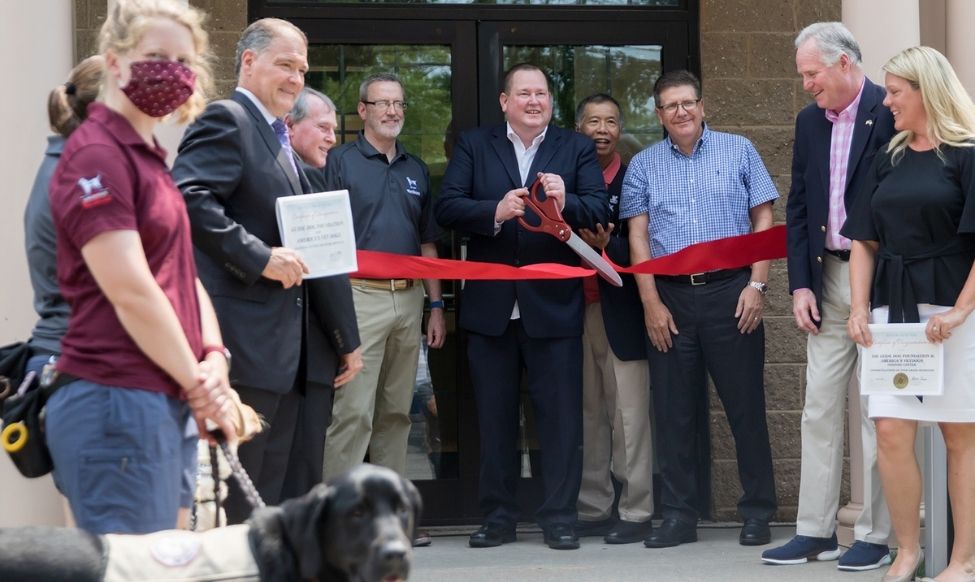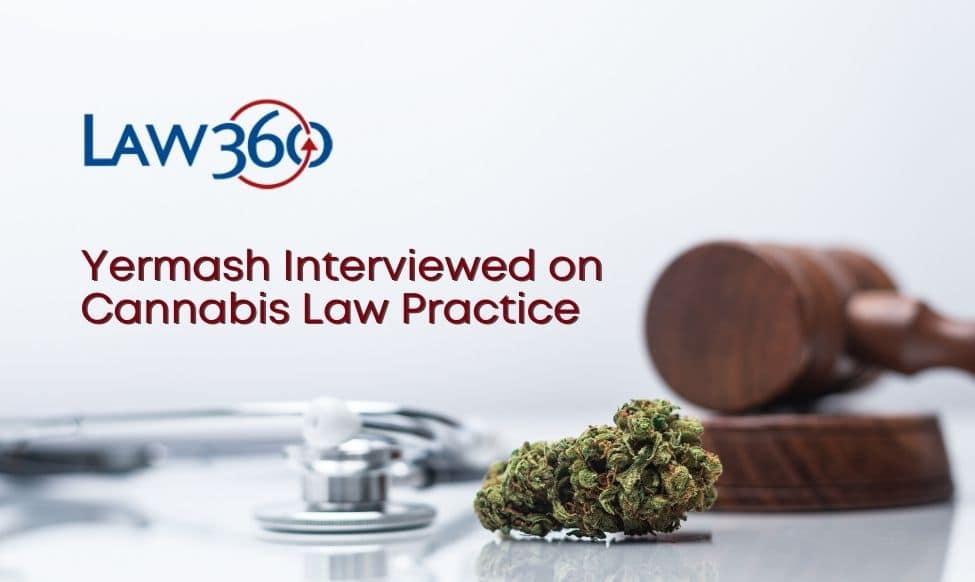The United States Supreme Court recently agreed to review its first major Second Amendment case since deciding Heller v. District of Columbia (2008) and McDonald v. Chicago (2010) over a decade ago. In the years since, mass shootings continue to shock the American conscience by taking or forever changing the lives of people from children to senior citizens and all walks of life. Despite the Court’s role as the “interpreter” of the Constitution, since these two landmark decisions (despite several opportunities), the Supreme Court has declined to take up cases pertaining to the Second Amendment – until now. Here, a look at where the law stands and where the Court may go.
The Second Amendment
The Second Amendment to the United States Constitution provides that “a well regulated Militia, being necessary to the security of a free State, the right of the people to keep and bear Arms, shall not be infringed.”
The constitutions of Mexico and Guatemala also expressly include the right to bear arms. Together, these three countries make up the only three countries in the world with the right to bear arms expressed concretely in their constitutions. However, unlike Mexico and Guatemala, whose constitutions both place restrictions on gun ownership – or at least mention regulation[1] – the United States remains the only democratic nation in the world with the right to bear arms in its constitution and no stated restrictions or regulations on gun ownership in that very same constitution. Therefore, it falls to the Supreme Court to determine the restrictions and regulations that can be placed on the Second Amendment.
Gun Violence
One in three U.S. households own a firearm with about 121 firearms in circulation for every 100 residents. This makes the United States the most heavily armed nation in the world. Nearly 40 million guns were purchased legally in 2020 and in 2021, gun sales have surged upward. Nearly 20,000 Americans died from gun violence in 2020 and there were around 610 mass shootings. 2021 is halfway over and the U.S. has averaged more than one mass shooting a day this year.[2] These numbers demonstrate how important it is for states to receive guidance from the Supreme Court on this issue.
District of Columbia v. Heller
In its 2008 decision in District of Columbia v. Heller, the Supreme Court held that the Second Amendment to the U.S. Constitution protects an individual’s right to keep and bear arms, unconnected with “militia” service, for traditionally lawful purposes, such as self-defense.
The case stemmed from a challenge to the District of Columbia Code, which had a provision essentially prohibiting the registration of handguns (although the police chief could issue one-year licenses). It also required owners of lawfully registered firearms to keep them disassembled and unloaded in the home. Richard Heller was a D.C. police officer authorized to carry a handgun while on duty. He applied for a registration certificate for a handgun he wanted to keep at home, but his request was denied. Heller filed a lawsuit against the District of Columbia, arguing that the Code violated his Second Amendment right to keep a functional firearm at home without a license. The District Court had dismissed the case, but the U.S. Court of Appeals for the District of Columbia Circuit had reversed, holding that the Second Amendment protects the right to keep firearms in the home for self-defense, and that a requirement that firearms in the home be kept “nonfunctional” violated that right.
In a 5-4 decision, the Supreme Court ruled that the Code provisions regarding firearms violated the Second Amendment, and that the Amendment protects an individual’s right to keep weapons at home for self-defense unconnected to militia service. This opinion, drafted by Justice Scalia, was the first time the Court ruled on the meaning of the Second Amendment and interpreted what it means for an individual and their right to possess weapons for private use. (The Court found that the term “militia” should not be interpreted to cover only those serving in the military, saying that at the time it was drafted, the term referred to all able-bodied men who were capable of being called to military service. Reading the Amendment in a way that gives weight to the “plain meaning” at the time of its writing, the clause guarantees “an individual right to possess and carry weapons in case of confrontation.”)
However, the Court also stated that the Second Amendment right to bear arms is not unlimited; guns and gun ownership can be regulated. The Court wrote: “Although we do not undertake an exhaustive historical analysis today of the full scope of the Second Amendment, nothing in our opinion should be taken to cast doubt on longstanding prohibitions on the possession of firearms by felons and the mentally ill, or laws forbidding the carrying of firearms in sensitive places such as schools and government buildings, or laws imposing conditions and qualifications on the commercial sale of arms.”
McDonald v. Chicago
McDonald v. Chicago (2010) can be viewed as “Heller 2.0,” essentially clarifying that the Second Amendment also applies to the states (whereas Heller had reasoned that the D.C. law in question had been enacted under the authority of the federal government).
The case revolved around Otis McDonald, a retired maintenance engineer who legally owned several hunting rifles but wanted to own a handgun to feel safer in his neighborhood. However, Chicago’s law banning new handgun registrations and requiring registration of all firearms prevented this. McDonald, among others, filed a lawsuit that challenged the provisions of the 1982 Chicago law. The suit was filed in 2008 on the same morning that the Heller decision was announced.
At first, the federal District Court rejected McDonald’s claims that the ban of new handgun registrations was unconstitutional because the Supreme Court did not explicitly mention the Second Amendment and States’ rights in past cases like Heller. The Court of Appeals for the Seventh Circuit affirmed the dismissal.
However, in another 5-4 ruling, the Supreme Court decided that an individual has the right to keep and bear arms in the home for reasons such as self-defense, using Heller as precedent to apply the Second Amendment to the States. In the majority opinion, penned by Justice Alito, the Court held that the Second Amendment protects an individuals’ “deeply rooted” right to bear arms as it applies to state and local gun control laws.
Cases Since Then
Since the Heller and McDonald decisions, the Supreme Court has not ruled on any cases regarding the Second Amendment, although they came close a few times. More recently, in January 2019, the Court granted certiorari in New York State Rifle and Pistol Association vs. New York City, which concerned a law that barred the transportation of legally owned firearms from the city to anywhere outside of it. The District Court had found that the rule “merely regulates rather than restricts” the right to possess a firearm – and therefore did not violate the plaintiffs’ Second Amendment rights – and the Second Circuit had affirmed.
After the Supreme Court granted review of the case, New York City amended the law, and the Court concluded in April 2020 that the appeal had become moot. In his concurring opinion, however, Justice Kavanaugh addressed Heller and McDonald, hinting at the Court’s interest in future cases regarding gun laws: “The Court should address that issue [regarding federal and state courts applying Heller and McDonald correctly] soon, perhaps in one of the several Second Amendment cases with petitions for certiorari now pending before the Court.”
Despite Justice Kavanaugh’s foreshadowing, the Supreme Court’s reluctance to explore the meaning of the Second Amendment became increasingly evident two months later, when the Court turned down 10 Second Amendment cases.
New York State Rifle & Pistol Association Inc. v. Corlett
Now, a year later, the Supreme Court has finally agreed to take up the issue again in New York State Rifle & Pistol Association Inc. v. Corlett. While Heller and McDonald affirmed the Second Amendment right to possess firearms in the home, the Supreme Court has never weighed in on ownership outside the home. In Corlett, it can.
The plaintiffs in Corlett include a New York State guns rights group and two New York men who applied for a license to carry a handgun in public and were denied. The case challenges a New York State law that requires gun owners to obtain a license if they want to carry a gun outside their home. The District Court for the Northern District of New York dismissed the case in 2018, and the Second Circuit affirmed the dismissal in August 2020. The Supreme Court is expected to hear the case in its next term this fall. The Court’s decision in Corlett has the power to clarify the established precedent allowing regulation of gun ownership and how to define reasonable restrictions.
Regulation
While the precedent makes clear that gun ownership can be reasonably regulated (recognizing “longstanding prohibitions” on felons and mentally ill people carrying guns, for example), until the Supreme Court weighs in, defining “reasonable” regulations and which “longstanding prohibitions” apply is anyone’s guess. For instance, the majority in Heller states that the laws forbidding the possession of firearms in “sensitive” places like schools and government buildings should not be “cast doubt on.” This confirms that the rights secured by the Second Amendment are not unlimited. However, it is up to the Supreme Court to address and set expectations for these kinds of regulations.
Stare decisis is a legal doctrine that requires courts to follow legal precedent and promote stability in society when ruling on cases with similar issues. The law must be predictable; similar facts cannot be approached in random ways. For the Supreme Court justices to wake up one day and change precedent would undermine the entire system.
However, while the Supreme Court has the ultimate responsibility to protect individual liberties, its role is to do so while protecting the health and safety of its citizens at the same time. Weighing the constitutional right to bear arms and the societal impact on the large number of people killed by guns demonstrates that the right to bear arms cannot exist without regulation if reasonable regulation will mitigate the number of deaths. And while past cases related to the Second Amendment are few, the Court can also rely on custom, tradition, and plain common sense to guide their upcoming decision in Corlett.
For instance, we regulate cars and driving: not just anyone can legally drive a car – and that’s because cars have been recognized as dangerous without regulation. There is a process (which slightly varies by state). In general, at 16, you can take a test to apply for a learner’s permit. Then there’s driver’s ed and a road test to attain a junior license and then a senior license. Up until a certain age, there are restrictions on what time you can drive and where. Drivers can lose driving privileges for things like drunk driving and other unsafe driving practices. Moreover, cars must be registered and insured. Cars themselves are subject to regulations and safety measures, such as seatbelts and airbags. Car manufacturers must issue recalls if a car has a defect or an issue that needs to be fixed – which is why, for example, cars no longer have gas tanks in the rear like the ill-fated Ford Pinto.[3]
Clearly, guns are not the only cause of death in the United States, as the automobile example demonstrates. However, despite automobile deaths surpassing gun deaths in the U.S. overall, in 21 states, gun deaths do outnumber car accident deaths. According to data from the CDC, the trends show a steady decline in motor vehicle deaths since 1950, while gun violence deaths have steadily increased. While nine out of ten households in America have access to a motor vehicle, a little less than a third of American households have a gun – and yet firearms deaths have almost caught up to motor vehicle deaths.
The Supreme Court will have the power to set restrictions on the Second Amendment with the Corlett case and clearly interpret the Second Amendment. Corlett is giving the Supreme Court an opportunity to decide how to balance “reasonable regulations” and the “right to bear arms”– otherwise, the Court is leaving states and municipalities in the dark on how to regulate guns and failing in its role as the Constitution’s guardian.
Whichever way the Supreme Court rules on the Corlett case, one thing remains certain: the Court bears the responsibility to ensure that individual rights are impeded in a minimal way, but that the health and safety of society is protected to the maximum extent possible. Let’s hope they do so wisely.
[1] Guatemala’s Constitution under Article 38 states, “The right to bear arms is recognized [and is] regulated by law.” Mexico’s Constitution under Article 10 also recognizes the right to “keep arms at home” and mentions that “Federal Law will state the cases, conditions, requirements and places where inhabitants can be authorized to carry weapons.”
[2] While a mass shooting is not defined by the FBI in its own terms, a mass murderer is defined as someone who kills four or more people in one location. Therefore, a mass shooting is generally defined as a single incident in which four or more people are shot or killed.
[3] The Ford Pinto – a car made by the Ford Motor Company – was recalled after a National Highway Traffic Safety Administration investigation due to the defects found in the design of the gas tank in the rear of the car that made it susceptible to leakage and fires in rear-end collisions.








